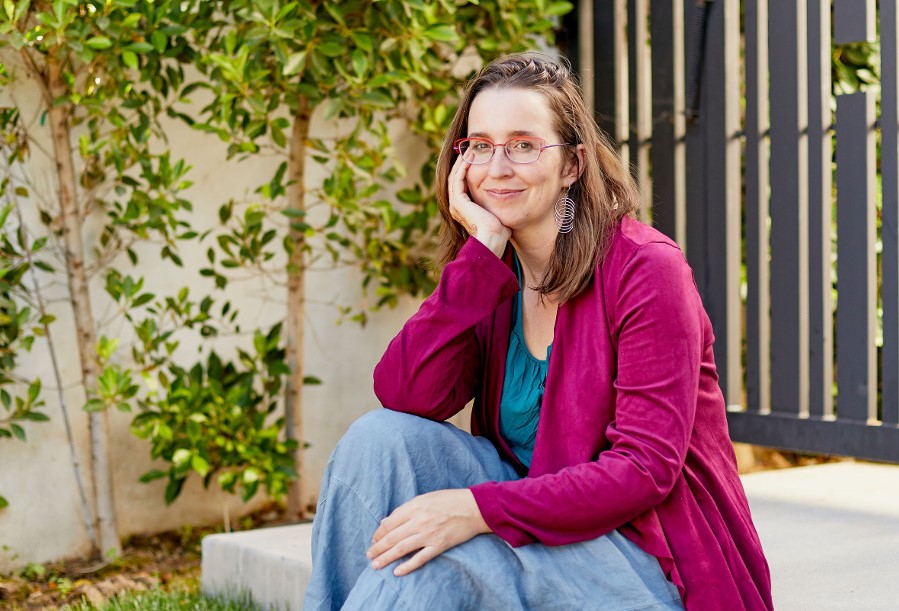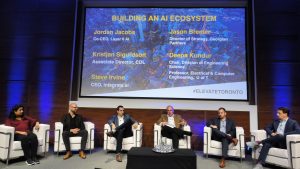
Much buzz currently surrounds the online The Party at the End of the Patriarchy conference currently underway from Oct 25th, 27th and 29th 2021.
Organized by Mazarine Treyz and sponsored by LiisBeth, this 3-day event invites feminists to move, create and dream about what a world free from the patriarchy would look and feel like.
LiisBeth chatted with Mazarine to find out more about the event that promises to challenge feminists, question current structures and expand our radical imagination.
LiisBeth: Why did you create this event?
MT: I believe we have an obligation to come together. No matter how bad things get, it always makes it better when we come together and cultivate our radical imaginations towards a better world.
LiisBeth: What can people expect from the event
MT: It’s a time for networking, and the sessions will help cultivate our radical imaginations. Why do we need more imagination? Because the first person who made an airplane had never seen an airplane [before], and the first person who had a car hadn’t seen it [before] either. What we’re trying to do is build our own airplane. We don’t want to be extractive.
LiisBeth: What makes a conference extractive?
MT: It’s treating people like ATMs and robots, jamming in as many sessions as you can. [It’s] when presenters are rushed and people are not getting fairly compensated.
There’s no acknowledgement of the fact that we’re living through multiple extinction events that are extremely stressful and depressing. So we have a grief expert, Kierra Sunae Taplin, for a session on Pandemic Grief. I wanted to create something that’s feminist-focused; more acknowledging of our own humanity, [to] give people time to breathe. Capitalism is built on tamping down on emotions and trying to get pleasure from extracting whatever you can from the environment around you.
Liisbeth: How did you choose your speakers?
MT: I chose them based on the fact that we have to do things differently now and because of the unique perspectives and skills they bring to the conversation. A couple of speakers will talk about online fundraising—how to ask for a major gifts over Zoom for instance.
LiisBeth: What makes this conference feminist?
MT: All speakers are women. It’s also feminist because of [how] we leveraged feminist principles when we designed the event experience, and the kinds of topics we explore. For example, Veronica Garcia will focus on the idea of wealth reclamation. From the Global South to [Global] North there’s been a great transfer of wealth [to the north] over the last 200 years of capitalism, patriarchy and white supremacy. She’s asking us to think about how we can work in ways that help [facilitate the] transfer of wealth towards the Global South. We also talk about [ideas like] the discipline of hope.
LiisBeth: What is the discipline of hope?
MT: Edison failed the first 100 times before he made the light bulb. But he had discipline of hope. It’s about cultivating a radical imagination towards a vision. That’s why it is important to come together as a community.
LiisBeth: What can feminist entrepreneurs expect to take away from this conference?
We will talk about how to run a flourishing, feminist principles-informed enterprise. This includes how to lift other women of color towards their goals; how to expand the opportunities available to them. The conference is a platform for generating new ways of thinking and acting. People will get ideas of how they could do little things every day or every week to help other women and still make money.
LiisBeth: What does a post-capitalist world look like to you?
MT: It would be a world where women could afford to leave abusive home situations. It would be a world where we took care of the most vulnerable elders, disabled people, and children first, and always centered them in every decision we make on a systems level. One policy decision we could make around this is [introducing] universal basic income. This is one idea towards the development of a post-capitalist economy. How would we afford it? TAX THE RICH! Someday, we’re going to move beyond money. I think a lot more of us would be feminist entrepreneurs and post-capitalist entrepreneurs if we didn’t have to worry about this system eating us alive.
LiisBeth: What is radical imagination and why is it important to cultivate one?
MT: Think about it: we have only had this version of capitalism for the last 100 years. Before that we had feudalism and the divine right of kings in Europe. We thought [those] would last forever too! People saw this system break down because of the Black Plague.
This last year it was easy to sink into despair and grief. We can’t ignore the [ongoing genocide of] Indigenous women disappearing all over Canada, the Black Lives Matter movement, [or the] climate crisis. In our city, Portland, OR, we [saw] open fascism—people getting snatched off the street by police and federal officers. We know these current systems can be torn down and rebuilt.
We can imagine a world where we all get more than enough to live on. Where we have free healthcare, free education and free housing. Where we have systems that have more humane and ecologically-focused metrics that center the earth, women, children, the elderly, and disabled folks. We can move from a profit-based extractive economy to a restorative economy. This is what we want the new world to look like. We have to exist in capitalism until we change the world.
LiisBeth: How do you cultivate your own radical imagination?
MT: You have to surround yourself with proof [of what is] happening. So I have books that I carry with me. Like Kai Cheng Thom’s ‘I Hope We Choose Love’, Nora Samaran’s ‘Turn This World Inside Out,’ ‘Belly of the Beast’ by Da’Shaun Harrison and ‘Capitalist Realism’ by Mark Fisher. I want people to come to this conference and see that this world is coming. [I want them to] be a part of shaping it.”
LiisBeth: What topics do you expect will dominate our collective discourse in the near future?
MT: We’re going to look at the quality of our movements and ask how we can be more supportive and less divisive. We need to work together to make this new world. We must look at what our systems are based on and how we [can] concretely fight white supremacists inside our organizations. Do we tear it all down? Maybe we have more coalition building, and I hope we do that.
Join the party! Check out the amazing speaker lineup and conference program and then register for the conference today. There is still time!
Note: This interview was edited for clarity and length.
Related Reading

Why Embodied Feminist Spaces Matter. And Why We Need to Bring Them Back
Fall is typically a season packed with feminist meet ups, community gatherings and conversation spaces. What to do this year? Can ZOOM meets ups fill the void?

What the EFF? Top Six Takeaways from the 2018 Entrepreneurial Feminist Forum
When a bunch of entrepreneurial feminists gather in one place over two days, sh*t gets done. Outspoken Q&A sessions, riveting foundational speakers, Sharpies scribbling testimonials on paper in paradigm-breaking workshops. Attendees left with a renewed hope, practical resources, and ways to connect and take action.

How To Achieve True Diversity At Conferences? Embrace Discomfort
Boosting the gender equality and equity needle at events and festivals requires organizers to get out of their comfort zone.



